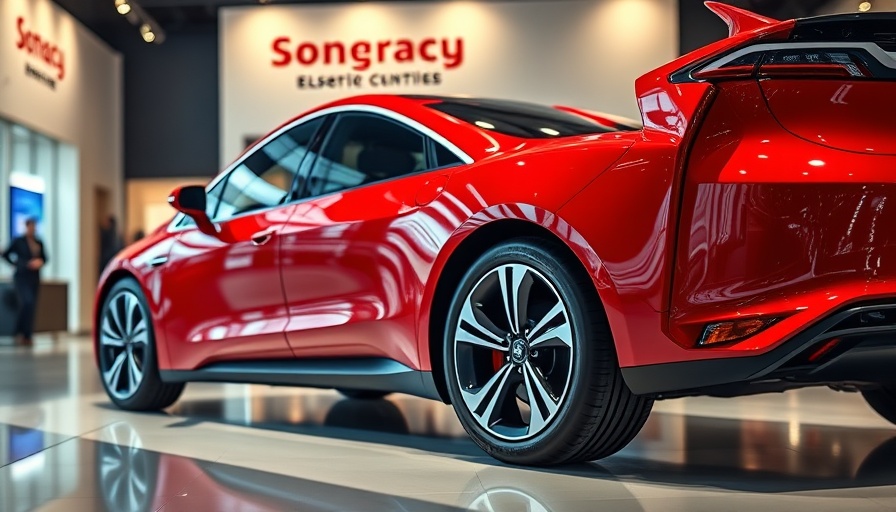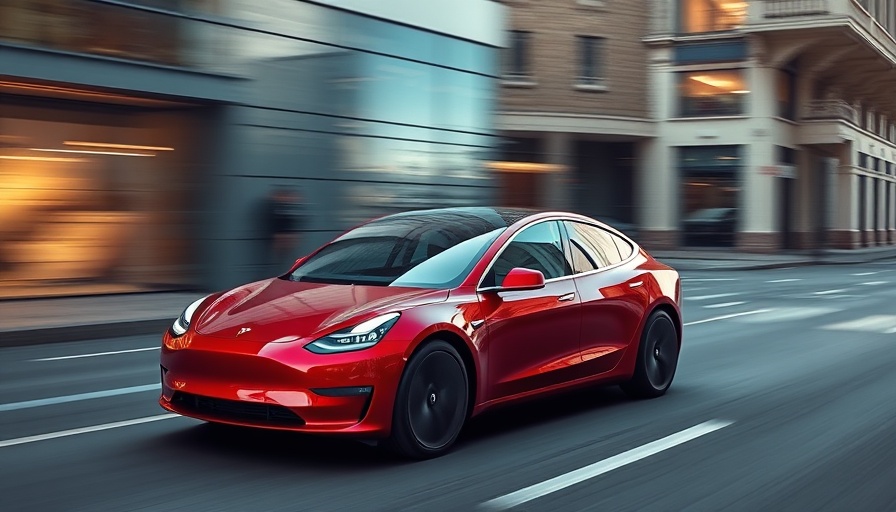
A Transformative Partnership: Nissan and Foxconn in the EV Space
The landscape of the automotive industry is in constant flux, driven by technological advancements and shifting market demands. A recent discussion between Nissan, a stalwart in the automotive world, and Foxconn, known primarily for its tech manufacturing prowess, epitomizes this transformative period. The talks have moved beyond mere speculation of collaboration to concrete possibilities—Foxconn may soon utilize Nissan's underused Oppama plant in Japan to produce its own electric vehicles (EVs), marking a significant step for both companies.
History of Automotive Evolution and Industry Shifts
Since its inception, the automotive industry has undergone monumental changes. The 1920s introduced mass production techniques pioneered by Henry Ford, revolutionizing how cars were made. Fast forward to the present, the integration of technology into automobiles has fostered a new paradigm where traditional automakers like Nissan must now forge unexpected alliances. Foxconn’s interest in the automotive industry showcases how tech companies are seeking to penetrate the largest automobile industry in the world, taking on roles that were previously held solely by automakers.
The Unique Synergy: Tech Meets Automotive Manufacturing
Foxconn is already a major player in tech hardware, assembling devices like Apple’s iPhones. Its recent pivot to automotive manufacturing illustrates a broader trend where tech companies are increasingly involved in vehicle production. Since 2019, Foxconn has been developing its own EV platforms and establishing its own automotive brand, Foxtron. This strategic shift aligns perfectly with Nissan's need to optimize production capacity in a climate where the market for electric vehicles is rapidly growing.
The Future of the Automotive Industry: Predictions and Trends
Experts predict that the automotive sector is on the brink of unprecedented innovation. The collaboration between Nissan and Foxconn could signify the start of a new era where technology companies not only supply auto parts but take an active role in manufacturing vehicles themselves. As Foxconn negotiates with other manufacturers, such as Mitsubishi, to create electric buses and passenger vehicles, the potential for a transformed automotive industry becomes palpable. This shift may lead to a more agile market, better equipped to adapt to consumer preferences.
Counterarguments: The Risks of Outsourcing Production
While this partnership holds promise, there are significant risks and potential downsides. Relying on a technology company for vehicle production could introduce challenges such as quality control and brand identity. Furthermore, as Nissan grapples with the operational implications of closing factories, outsourcing to Foxconn may raise concerns among workers and consumers around job security and the future of domestic manufacturing in Japan.
A Broadening Footprint: Foxconn's Ambitions in the Automotive Realm
Foxconn isn’t just looking at Nissan; the company has also secured deals with Mitsubishi to create EVs for markets in Australia and New Zealand. This expands their influence in both commercial and passenger vehicle segments, showcasing the liquidity of partnerships in the automotive realm. As Foxconn capitalizes on these partnerships, it illuminates the complex interdependencies that characterize the car industry today.
Conclusion: A New Automotive Paradigm
The dialogue between Nissan and Foxconn is emblematic of a larger trend reshaping the automotive landscape—a blend of technology expertise with traditional manufacturing acumen. As both companies explore this collaboration, they may redefine what it means to be a car maker in an increasingly tech-centric world. The pertinent question remains: how will this shift affect consumers, jobs, and the very nature of automotive manufacturing in the future?
 Add Row
Add Row  Add
Add 




Write A Comment